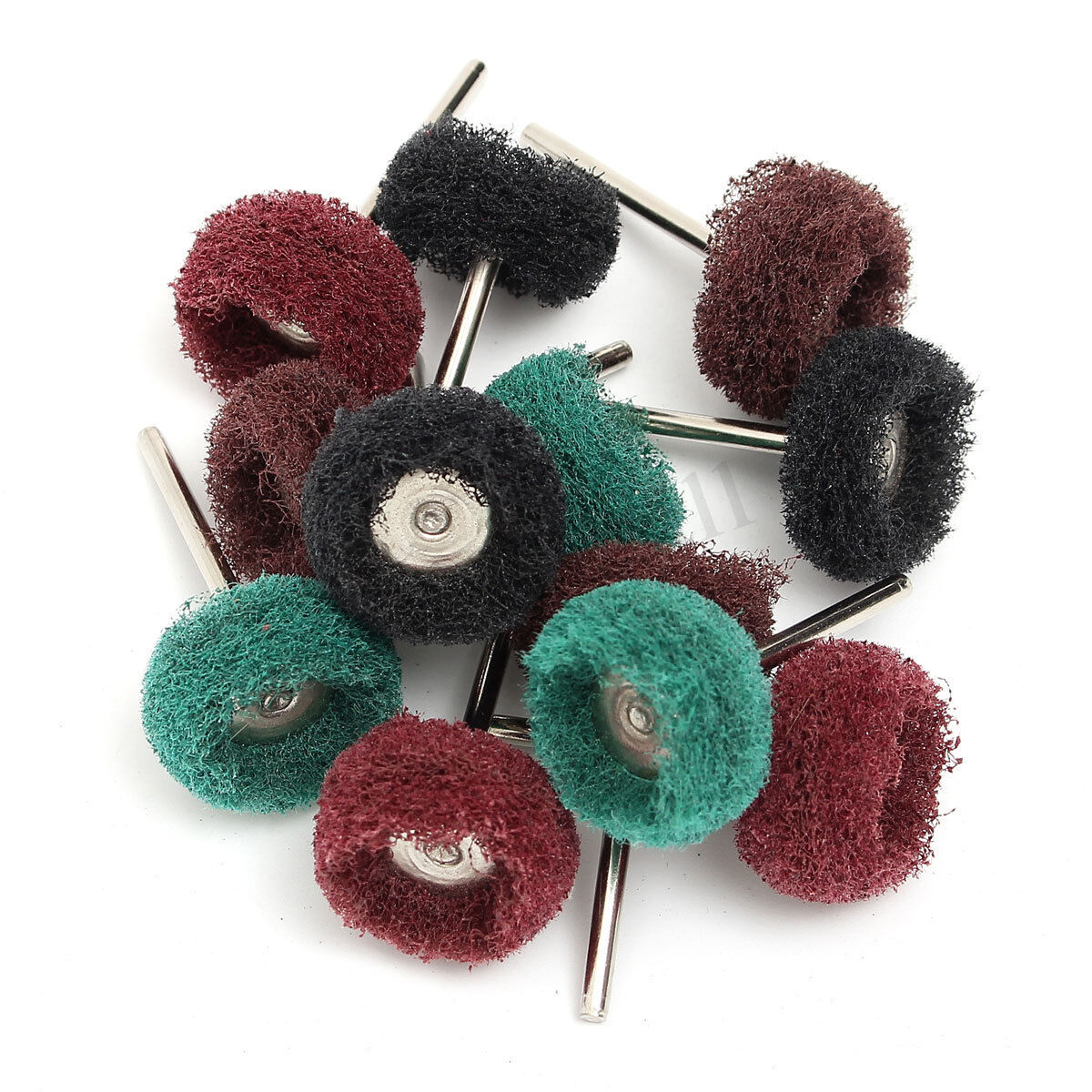You are using an out of date browser. It may not display this or other websites correctly.
You should upgrade or use an alternative browser.
You should upgrade or use an alternative browser.
Cylinder Clean up.
- Thread starter L34
- Start date

Help Support Arborist Forum:
This site may earn a commission from merchant affiliate
links, including eBay, Amazon, and others.
Chainsaw Jim
CJ Saws, LLC
The flappy wheels are not good for cleaning these kind of cylinders. When the paper hits the ports it'll flex out in the opening a little bit and then contacts the opposite edges much harder and eats the plating away.
It isn't a bad idea to use a rolled up piece of wet dry by hand to do a good final cleaning. Or maybe a quick spin with a set of deglazing stones.
It isn't a bad idea to use a rolled up piece of wet dry by hand to do a good final cleaning. Or maybe a quick spin with a set of deglazing stones.
Thanks Jim,understand what you mean about the flex.
cuinrearview
Red saw lover
Acid with heat and these, a little time/patients will clean them up and they will make good compression. They will not hurt platting. Use on a dremel with a shaft. Usually about 30 minutes work, a couple of these and 150+ compression before a few tanks of gas which usually they will improve.
https://www.ebay.com/itm/Abrasive-W...008347&hash=item56be534363:g:je4AAOSwws5cPqlc

https://www.ebay.com/itm/Abrasive-W...008347&hash=item56be534363:g:je4AAOSwws5cPqlc

Thanks guys.
Your terminology for scotch brite is a bit different to mine down under.
The strip mentioned above is know as emery cloth to me.
Scotch brite is a wheel or disc.
Cheers,Chris.
Your terminology for scotch brite is a bit different to mine down under.
The strip mentioned above is know as emery cloth to me.
Scotch brite is a wheel or disc.
Cheers,Chris.
cuinrearview
Red saw lover
I apologize. In my pic of abrasives above, scotch brite(which comes in 8x12" sheets) is upper right, strips of sandpaper(in 240 and 500 grit) are below. The gray one some here might call emory cloth.Thanks guys.
Your terminology for scotch brite is a bit different to mine down under.
The strip mentioned above is know as emery cloth to me.
Scotch brite is a wheel or disc.
Cheers,Chris.
I've never used anything but acid on a q tip and 80 grit in a slotted mandrel. 99% or it is done with the acid. The emery just knocks off the high spots and smooths it out
Talking about cylinders with medium to light scratching,with no transfer.
More a final finish.
Cheers,Chris.
More a final finish.
Cheers,Chris.
I wouldn't do anything if there's no transfer. After I'm done porting a cylinder I do run a 2" scotchbrite drum through the bore a few times to help polish port edgesTalking about cylinders with medium to light scratching,with no transfer.
More a final finish.
Cheers,Chris.
cuinrearview
Red saw lover
I'm a little more aggressive than most. I don't use acid. I will hand sand if the transfer is light, but I use strips of paper in varying grits in the drill depending on the severity. I always finish with the scotch brite. I'm almost always using a new ring at a minimum so the finishes will wear in together.
As in my top pic?I wouldn't do anything if there's no transfer. After I'm done porting a cylinder I do run a 2" scotchbrite drum through the bore a few times to help polish port edges
Yours is what I'd call a 60 grit flap wheel drum. It would knock off any any high spots left next to scratches in the plating. I wouldn't try removing enough material so that the scratches were gone. It would also work for adding a slight crosshatch to the cylinder wall, which may help break in the rings. Not sure the latter is necessary though.As in my top pic?
This is what I use. Like I said, it's just for polishing port bevels after port work. I think it also de-glazes the cylinder wall a little bit and helps make it shine for taking pictures to send to the customer. Other than that, I don't feel it does much. Some 320 grit emery would probably suffice on the port bevels.

Thanks for all the replies gents.
Huskybill
Addicted to ArboristSite
The scotchbrite wheels are suppose to work good. Go back and forth to create a cross hatch. Don’t stay turning in one spot. I polish them with a piece of 1500 grit paper. I break the sharp corners on the ports after porting with 1500 paper.
Husqvarna cylinders are hard industrial chrome plating.
I purchased a gear driven adjustable hones for boring nickasil dirtbike cylinder and cylinders with steel and castiron liners. I been using gear driven adjustable hones since my teens.
www.goodson.com
I can bore and hone cylinders from 50cc to 600cc in bikes and any size gas. I do all my own work.
Husqvarna cylinders are hard industrial chrome plating.
I purchased a gear driven adjustable hones for boring nickasil dirtbike cylinder and cylinders with steel and castiron liners. I been using gear driven adjustable hones since my teens.
www.goodson.com
I can bore and hone cylinders from 50cc to 600cc in bikes and any size gas. I do all my own work.
Similar threads
- Replies
- 12
- Views
- 808






